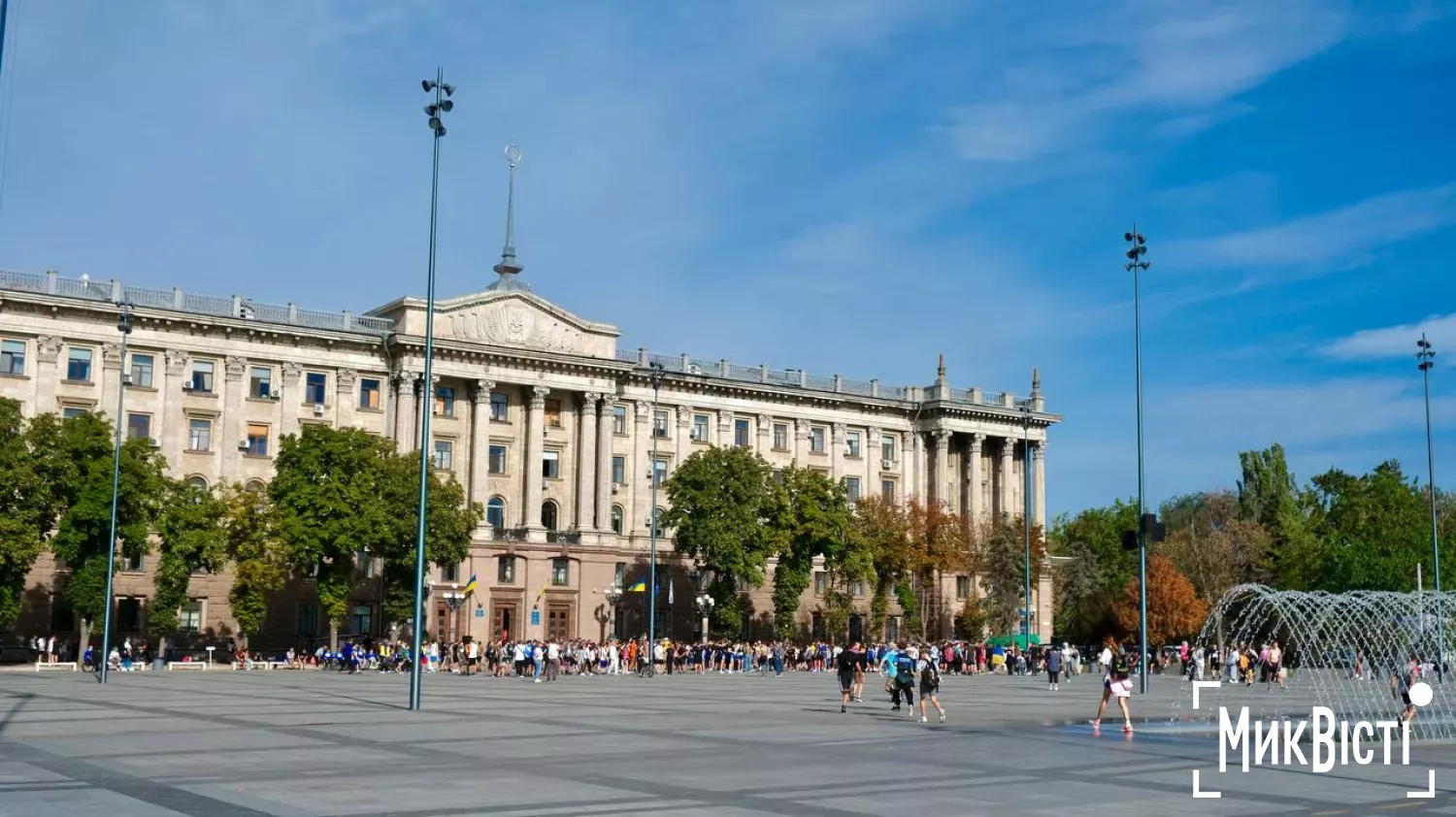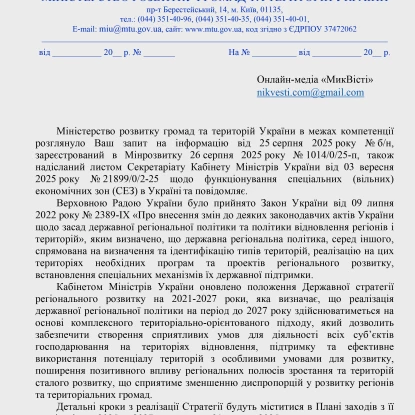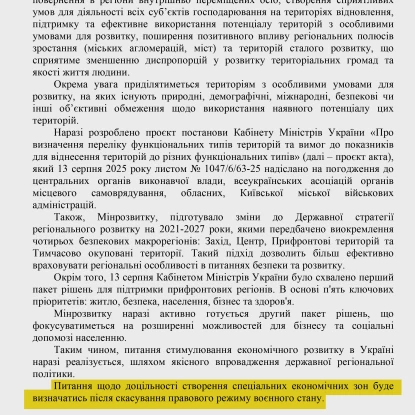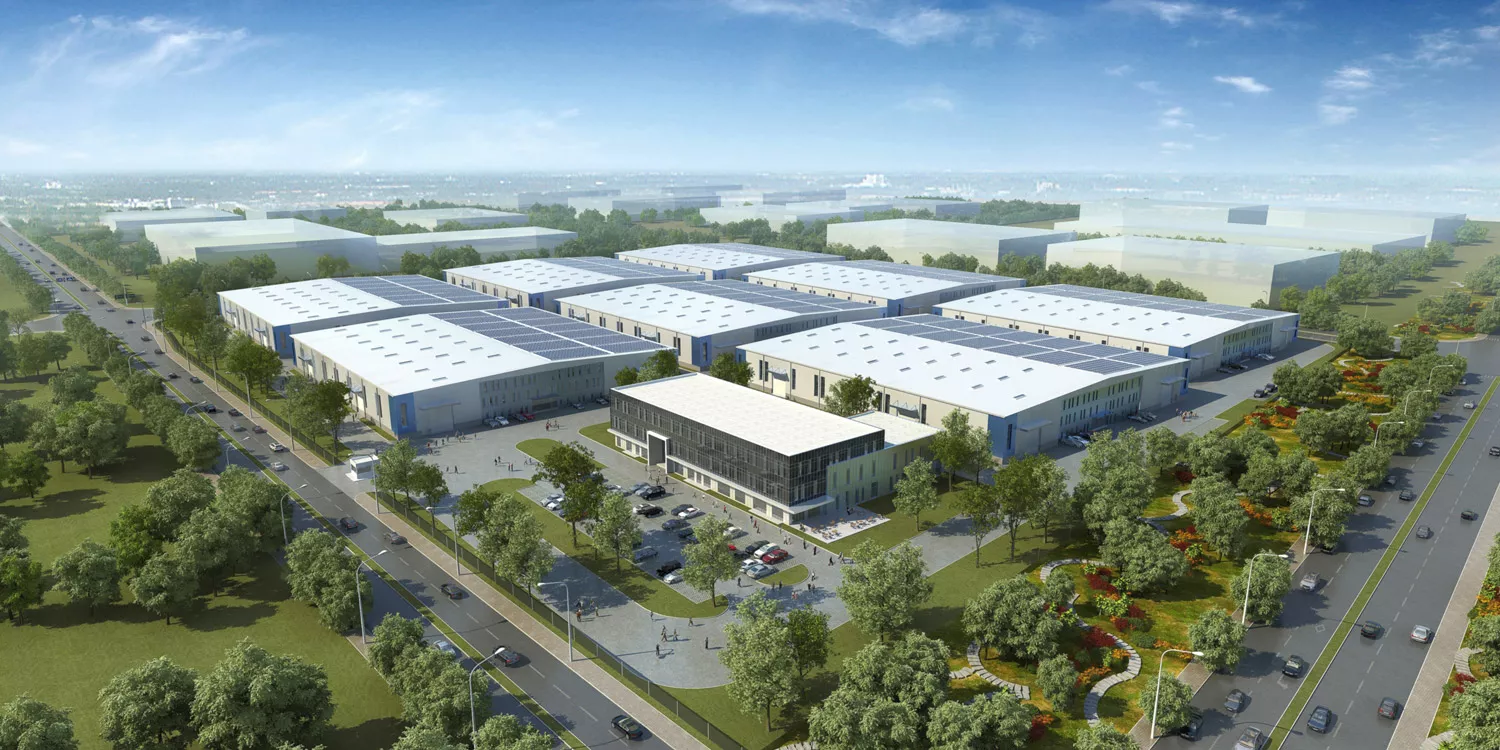Special economic zone for Mykolaiv: a chance to stop business outflow or a risk for the budget
- News of Mykolaiv
-
•
-

- Alina Kvitko
-
•
-
7:42, 01 October, 2025
The financial sustainability of Mykolaiv and the region is currently under intense pressure. The war has effectively shut down the seaports, which accounted for about 40% of the region's economy, and the central government's decision to withdraw part of the tax revenue has put local budgets in a difficult position. Against this backdrop, the idea of creating a special economic zone (SEZ) for the frontline city is increasingly being raised. Proponents argue that only tax incentives can keep businesses in frontline cities. Sceptics warn against the risk of the zone turning into a «tax hole».
NikVesti looked into what a special economic zone is, whether it will save Mykolaiv's economy, and what are the prospects for its creation.
Why does Mykolaiv need special conditions?
In the third year of the full-scale war, Mykolaiv's economy remains extremely vulnerable. The blocked seaports, which used to account for almost half of the gross regional product, have led to a sharp drop in industrial production and the loss of thousands of jobs. Large enterprises, such as the Mykolaiv Alumina Refinery, have had to cut staff several times and are maintaining only critical processes. Logistics became more expensive, businesses lost traditional markets, and local budgets lost a significant portion of tax revenues.
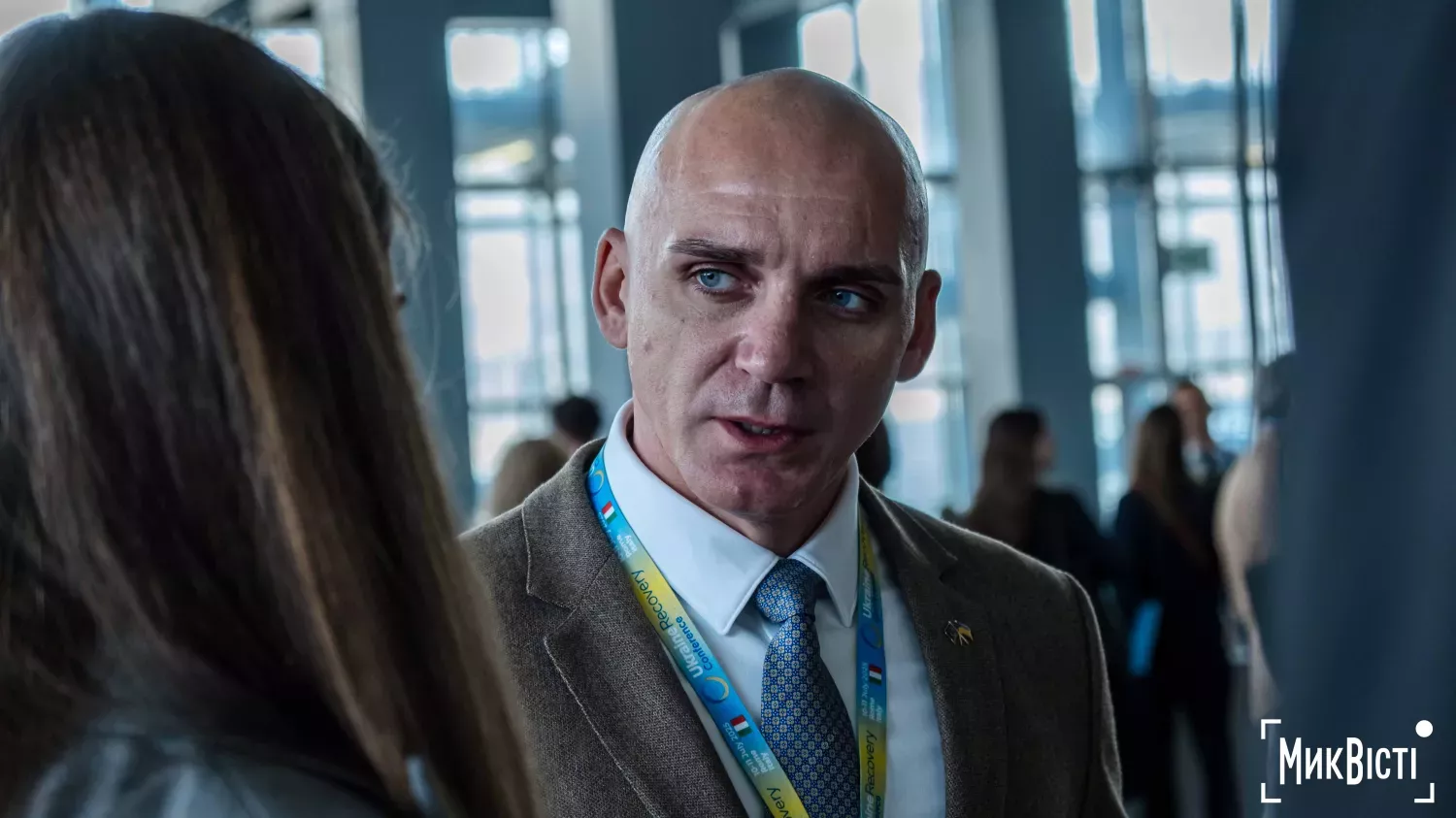 Mykolaiv Mayor Oleksandr Sienkevych: «Without additional preferences, the city will lose entrepreneurs and staff. Photo: archive NikVesti
Mykolaiv Mayor Oleksandr Sienkevych: «Without additional preferences, the city will lose entrepreneurs and staff. Photo: archive NikVestiAt the same time, the region has experienced a large-scale outflow of businesses. Since the start of the full-scale war, 911 companies have left Mykolaiv region (as of March 2025) in search of safer working conditions. This trend has hit the labour market and local budgets hard. At the same time, 706 companies from other regions registered in the region and started paying taxes to local budgets. Among them is the company founded by Monobank co-founder Oleh Horokhovskyi, which has become a vivid example of how it is possible to invest and develop business even in a frontline city.
According to Mayor Oleksandr Sienkevych, these facts confirm that without creating special economic conditions, Mykolaiv will not be able to retain existing businesses and attract new investments. That is why he voiced the idea of introducing a special economic zone two years ago.
When asked NikVesti about the current stage of this initiative, Mykolaiv Mayor Oleksandr Sienkevych said that he plans to engage experts to draft a law and propose Mykolaiv region as a pilot for implementation.
«Domino effect» for frontline cities
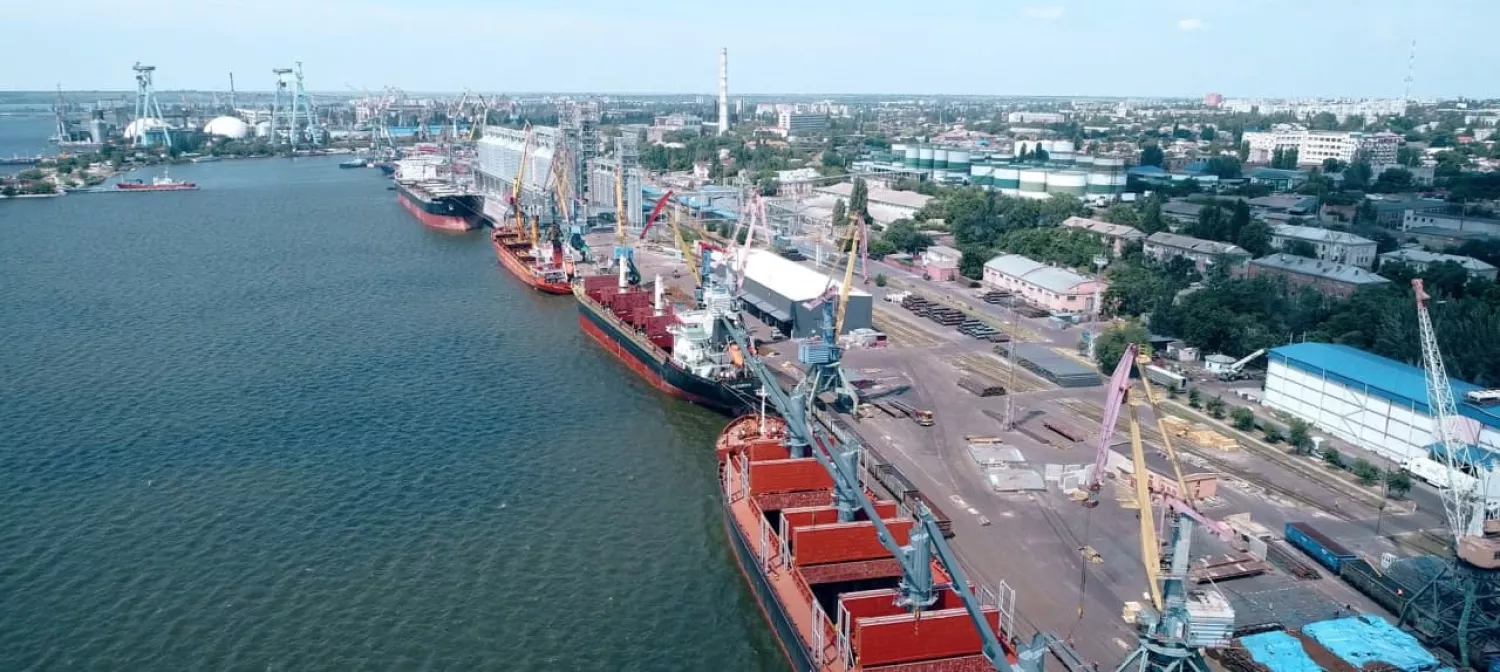 The port of Mykolaiv has been closed for four years due to blocked shipping, archive photo of the Mykolaiv seaport
The port of Mykolaiv has been closed for four years due to blocked shipping, archive photo of the Mykolaiv seaportAccording to Oleksandr Sienkevych, a special economic zone may be the only mechanism to stop the «domino effect» — the outflow of business and personnel to safer areas. If companies develop only in safe regions, residents of frontline cities will go there for work, and tax revenues will decrease along with them. Lack of funds in the local budget means that infrastructure development — from kindergartens and schools to medical facilities — is halted. As a result, the population outflow is only growing, and the city risks turning into a depressed region with no prospects.
«If the conditions for investors in Lviv and Mykolaiv are the same, but the risks are different, what is the point of working here? This leads to the loss of taxes, budget cuts and infrastructure development, and ultimately to the city's transformation into a depressed region,» said Oleksandr Sienkevych.
Hello! I am Alina Kvitko, the author of this article.
Thank you for your attention to our texts — it means a lot to the NikVesti team.
We regularly publish in-depth materials for those who want to understand the topic and get to the heart of the matter.
We have dozens of examples when our journalism, together with our readers, has influenced situations and changed them.
Join the NikVesti Readers’ Club — support independent journalism that matters.
Support us by joining the NikVesti Club
The Association of Ukrainian Cities also recognises that frontline communities need special incentives. Oksana Prodan, Advisor to the Head of the Association of Ukrainian Cities, an economist, notes that it is not only about local taxes, but also about state taxes. Businesses that are not afraid to stay or enter the most dangerous areas with production should receive additional incentives from the state, primarily tax benefits at the national level. At the same time, Oksana Prodan emphasises that the name «special economic zone» does not solve anything by itself, the key is to create clear and long-term rules.
«I would debate the name — the zone does not sound attractive. But special economic conditions, additional ones for different types of territories, should have been introduced by the Parliament and the Government long ago. For example, for the rear areas, communities could be given the right «to share» local taxes with the communities where the business was relocated from. For the de-occupied territories, it is necessary to establish opportunities for attracting investment in the destroyed facilities. For the temporarily occupied, to recognise property as lost without the work of the relevant commissions. For the frontline areas, businesses should be exempted from local taxes on their own, with a mechanism for individual exemption of destroyed taxable objects, and state tax benefits for businesses that remain, enter or promise to enter the most dangerous areas. Businesses that remain in the frontline communities should also have incentives from the state,» said Oksana Prodan.
She adds that even after positive decisions are made, investors need time.
«For example, after creating additional conditions for business in technology parks, it will take years for the parks to fulfil the conditions, inform businesses about investment interests, weigh up opportunities, and so on,» explained Oksana Prodan.
Currently, the draft law on a special economic zone for frontline cities is being developed.
«We are consulting with the government, MPs and international partners. This is a fair tool to support our economy, as we face risks that communities far from the frontline do not. Our task is to make the city attractive for investment, to return businesses and attract new ones. The free economic zone can become a real advantage for Mykolaiv,» said Oleksandr Sienkevych in his commentary for NikVesti.
Ministry of Regional Development: Special economic zones — only after the war
The Ministry of Economy reminds that Ukraine currently does not have a law on special or free economic zones for frontline territories. Previous regulations have expired, so there is no legal basis for their introduction. At the same time, the ministry notes that as part of the preparation of the Cabinet of Ministers' Action Programme for 2025-2026, it is planned to develop special mechanisms to support businesses in the frontline regions.
The Ministry of Communities and Territories Development explains that the state regional policy for the period up to 2027 will be based on a comprehensive territorially-oriented approach. It should create conditions for businesses to operate in the recovery areas, taking into account their potential and specialisation. The Cabinet of Ministers has also prepared a draft resolution on the classification of functional types of territories and amended the State Strategy for Regional Development to include frontline macro-regions.
«The issue of the feasibility of creating special economic zones will be determined after the legal regime of martial law is lifted,» Deputy Minister Oleksii Riabikin said in response to a request from NikVesti.
Currently, support for the frontline regions is limited to state programmes for recovery, economic development and assistance to people, the Cabinet of Ministers said.
Kim: A classic free economic zone can create a tax «hole»
Commenting on the initiative to create a special economic zone for the frontline territories, the head of the Mykolaiv regional military administration, Vitalii Kim, expressed concern that it could create a budget deficit due to a lack of tax revenues.
«A free economic zone is a generalised concept. Its meaning is preferences from the state for companies operating in these areas. We are already working on this. But our conditions are more complicated: due to increased military risks, loans are more expensive, and banks are reluctant to lend. That is why additional mechanisms are needed to equalise the region's attractiveness to investors,» he explained in a commentary to NikVesti.
The main idea, in his opinion, should be to exempt from part of the taxes only those investors who create new jobs and work to restore the region's economy.
«A free economic zone in the classical sense, I'm not really «for», because it can become a tax «hole». Everyone comes here to avoid paying taxes. And they discussed it in terms of taxes paid in the past and taxes paid in the future. That is, if you create jobs, pay taxes in the future, you are exempt from them, but provided that you have created them, and not that they are in the region, you can avoid paying taxes. That is, we look at taxes on jobs through the prism of taxes on jobs. That is, those who will be involved in our plan, those who will create jobs, invest in Mykolaiv region and other frontline regions, will be exempt from taxes on future payments. So that this is not a pit for twists and turns, for all sorts of people, but a real sector of the economy that will lead to the recovery of Mykolaiv region,» said Vitalii Kim.
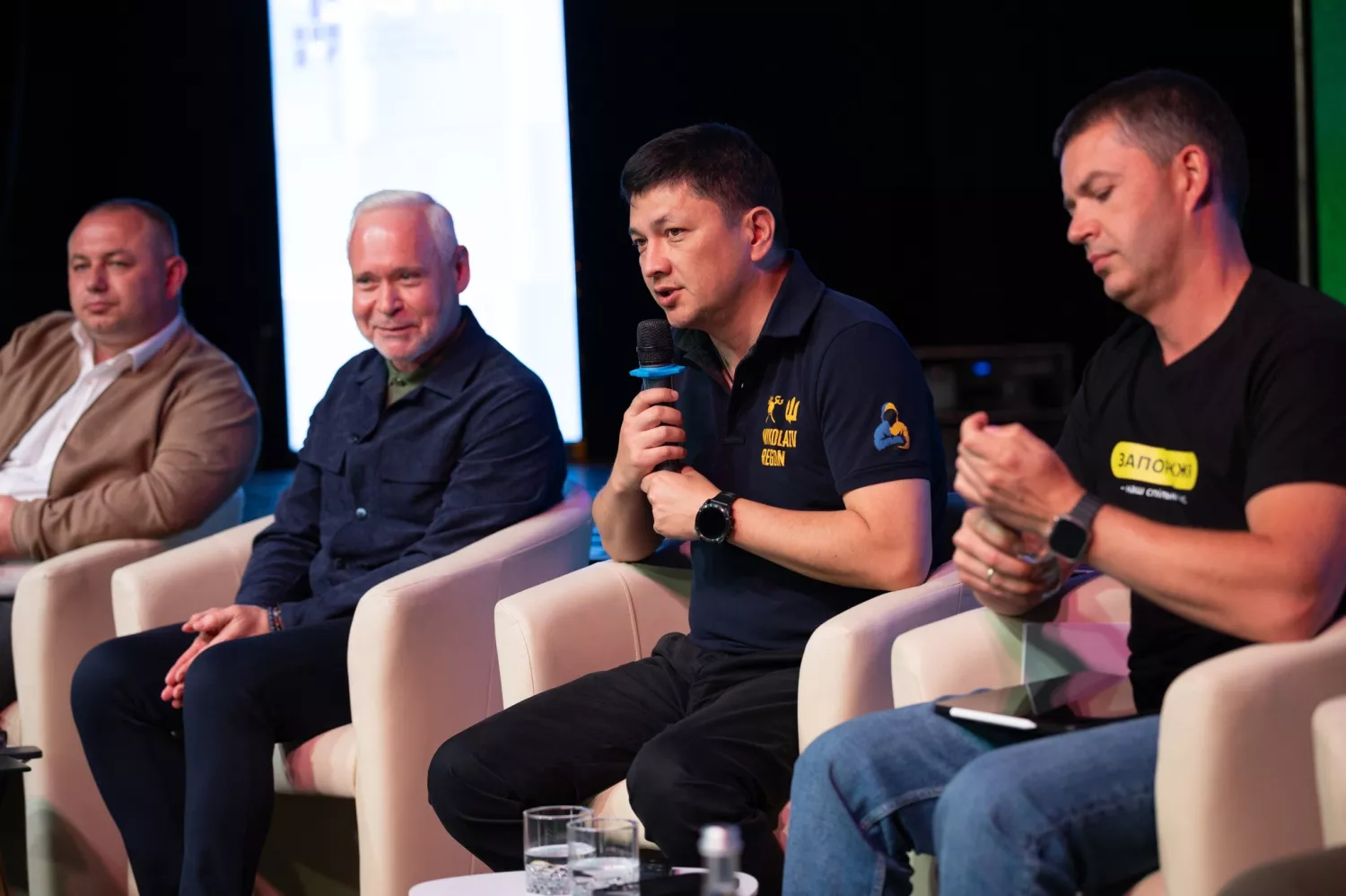 Kharkiv Mayor Ihor Terekhov and Head of Mykolaiv Regional State Administration Vitalii Kim at the forum «Strategic Dimensions of Outpost Cities». Photo: Mykolaiv RMA
Kharkiv Mayor Ihor Terekhov and Head of Mykolaiv Regional State Administration Vitalii Kim at the forum «Strategic Dimensions of Outpost Cities». Photo: Mykolaiv RMAAt the same time, Kharkiv recently hosted the Forum «Strategic Dimensions of Outpost Cities», where the creation of the Association of Frontline Cities and Communities was announced. The event was attended by the government, representatives of the frontline regions and regional administrations, but the mayor of Mykolaiv, Oleksandr Sienkevych, was not invited, although he was one of the first to voice the idea of economic preferences for the frontline regions. More than 100 communities from seven regions have united «to draw the country's attention to their needs and share experiences for recovery and development».
It is declared that the main goal of the Association is to unite frontline communities, provide stable funding, create conditions for effective business operation and address issues related to IDPs. The Association aims to support the functioning of these territories, ensure the provision of all necessary services and become a reliable pillar for the country.
Vitalii Kim, Head of the Mykolaiv Regional State Administration, emphasised that tax benefits should be granted only to those who create jobs and invest in the frontline areas to avoid the «tax hole».
«Yes, a free economic zone is a generalised concept. What does it mean? It means that there are conditions for preferences from the state for enterprises located in this area. We are already doing this. And we discussed with Yuliia Svyrydenko (Prime Minister of Ukraine) that even the conditions created for investment are equal across the country, but we have more difficulties. For example, due to the risk classification of interbank money, loans are more expensive in Ukraine. Banks don't want to lend to us because there are higher military risks. And there are many, many other things. And it is in this vein that we need to have additional conditions for the frontline regions to balance the attractiveness for investors, because we need to rebuild the frontline region first. This was the focus of the conversation. And it is in this vein that the Association of Frontline Cities will work to level the playing field for investors. This is to our advantage, and we are additionally working personally with all enterprises,» commented Vitalii Kim.
Prospects for the development of industrial parks in Mykolaiv
Two industrial parks have already been registered in the Mykolaiv region: «Techno Park Voznesensk» with an area of 19 hectares and «SUNART» with an area of 11 hectares. The former is intended to develop the leather industry, machine building, construction materials production, and scientific and technical activities. The second already has two participants and specialises in processing agricultural raw materials, producing oil, chemicals and animal feed.
According to Vitalii Kim, the head of the RMA, in 2025, it is planned to create another park on an area of up to 150 hectares, focused on agricultural processing, food and furniture industry, metalworking and related industries. To support them, a regional programme for 2025-2027 has been developed and approved, which provides for compensation of up to 50% of the cost of development.
«Currently, 100 hectares are ready for this park, and 250 hectares will be ready in the future. The operator will be a company that already has experience in managing industrial parks in Ukraine, including Bila Tserkva. By the end of the year, we plan to officially register the park, and we are currently designing engineering networks at the expense of the state budget so that entrepreneurs can enter. We plan to locate about 60 plants, of which we have preliminary agreements with six. But they are all waiting for the war to end to start working,» said Vitalii Kim.
Vitalii Kim, the head of the Mykolaiv Regional Association of Manufacturers, notes that investors are still cautious about the region due to its proximity to the frontline: «Potential investors are showing restraint due to significant risks to the security of investments, stability of economic activity and long-term business development prospects.»
At the same time, after the security situation improved, some of the companies that had previously relocated have already returned to the region, the RMA notes.
«I am convinced that this will become a driver of the recovery of Mykolaiv region. We have been working on this for a year. It may take another year. This is a complex process where you have to run twice as fast to move forward. This is a complex work: we need to restore vocational education so that companies have trained employees. We are planning to create English-language courses and facilities for children so that executives of companies, including foreign ones, can move here with their families,» said Vitalii Kim.
According to him, new housing and offices are planned to be built in Mykolaiv's Dubky neighbourhood, which can be transferred or leased to companies to accommodate employees.
The Mykolaiv City Council is also working to create its own industrial park. In January 2025, deputies decided to locate it on an area of 190 hectares in the Inhulskyi district. The concept was prepared by the Italian company One Works, and the territory will be divided into three functional zones — for production, service and infrastructure.
Mayor Oleksandr Sienkevych called the project strategic: «We do not have any competitive advantages over other territories. To have them, it is necessary to create economic zones in the form of industrial parks».
According to him, the city authorities, together with Danish businesses, are working to ensure that the state strengthens tax incentives and support for the frontline regions.
«Even before the full-scale invasion, land plots were identified in Mykolaiv to create an industrial park. When the war broke out, this work had to be suspended. However, in the process of developing the city's Master Plan, our partners, COWI and One Works, created a separate concept for the development of the industrial park. This document takes into account modern European standards, international experience and the specifics of the region. This means that once launched, the park will be able to become a high-quality platform for business development and job creation. At all my meetings, I emphasise that Mykolaiv, like other frontline cities, should have special conditions for the creation and development of industrial parks. We should have an additional advantage, as we face more risks than cities that are relatively safe,» said the mayor of Mykolaiv.
 Economic conditions for business are key to the recovery of Mykolaiv region. Photo: Mykolaiv cafe, archive NikVesti
Economic conditions for business are key to the recovery of Mykolaiv region. Photo: Mykolaiv cafe, archive NikVestiWhat will happen if Mykolaiv does not receive economic preferences
The discussion about a special economic zone for Mykolaiv goes beyond a single idea. In the third year of the war, this may be the only tool for the city to stop the outflow of business and people. Mayor Oleksandr Sienkevych emphasises that if the conditions for entrepreneurs remain the same across the country, but the risks in the frontline regions are much greater, there will be no point in businesses investing in Mykolaiv.
«Because if we are talking about the same business conditions for Mykolaiv, Vinnytsia, Khmelnytskyi and Lviv, and different territorial and military risks, then what is the point of doing something and building something in Mykolaiv at the current prices for transit in Ukraine between regions. It makes no sense for business: the risks are greater and the profit is the same,» said the mayor of Mykolaiv.
According to him, in such a situation, the «domino effect» works: businesses will open in the centre or west of the country, while Mykolaiv will remain on the sidelines.
«This will lead to an outflow of human resources, of people who want to earn money and live a normal life,» he explains.
Sienkevych adds that this will have a direct impact on the local budget:
«The outflow of personnel and tax cuts will lead to a smaller budget and less infrastructure development here. There will be no playgrounds, no kindergartens, no medical care. And this will lead to an even greater outflow of human resources. Thus, we will get a depressed region without any prospects».
Thus, without special conditions for business, Mykolaiv risks losing not only entrepreneurs but also human capital, which will effectively turn the region into a stagnant zone. Therefore, the issue of creating economic preferences for frontline cities is not only about finances, but also about the future of the community.
This publication was produced within the framework of the Institute for War & Peace Reporting (IWPR) project “Strengthening Public Oversight,” with financial support from Norway. The content of this publication is the sole responsibility of the NGO “Mykolaiv Media Hub” and the online media outlet “NikVesti.” This material can in no way be considered as reflecting the views of IWPR or the Government of Norway.

Чому ви читаєте «МикВісті»? Яка наша діяльність найбільш важлива для вас? Та чи хотіли б ви стати частиною спільноти читачів? Пройдіть опитування, це анонімно і займе 5 хвилин вашого часу


